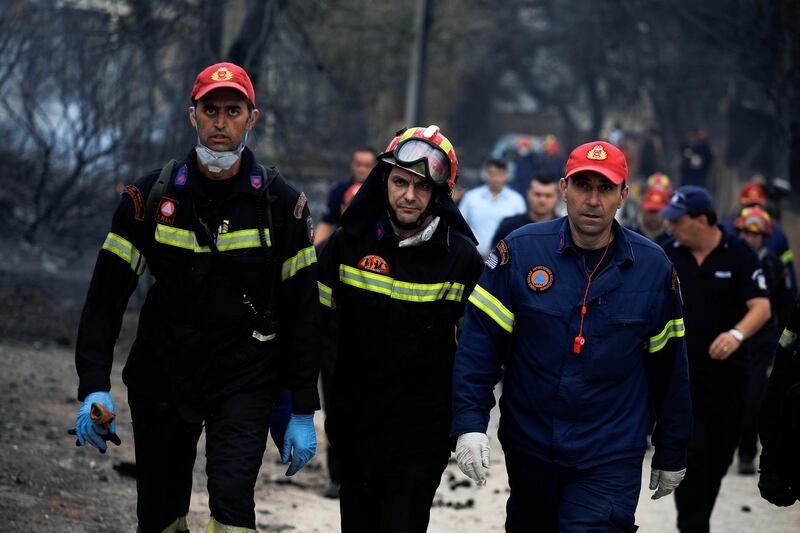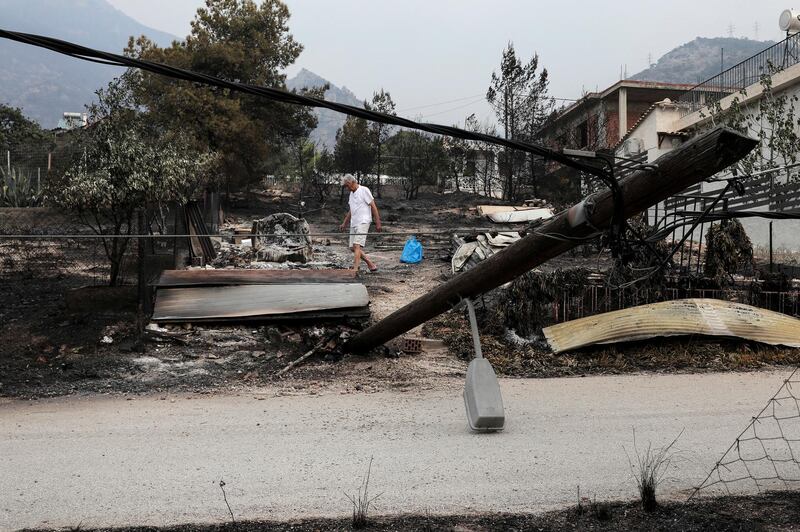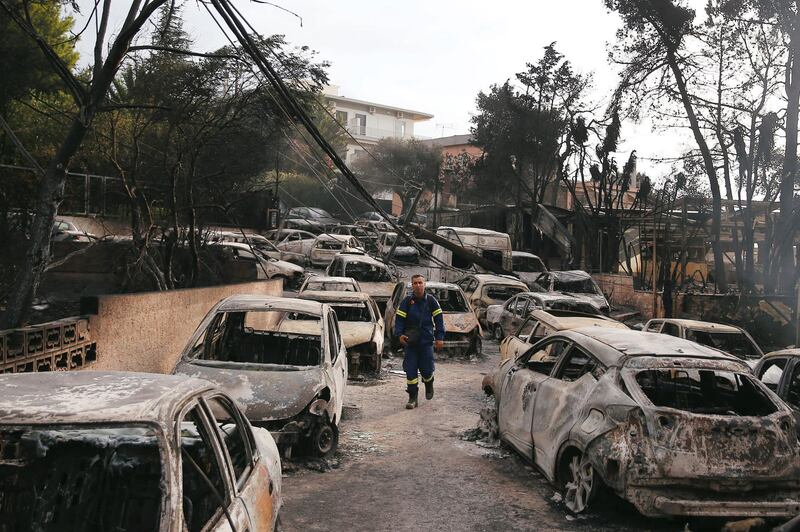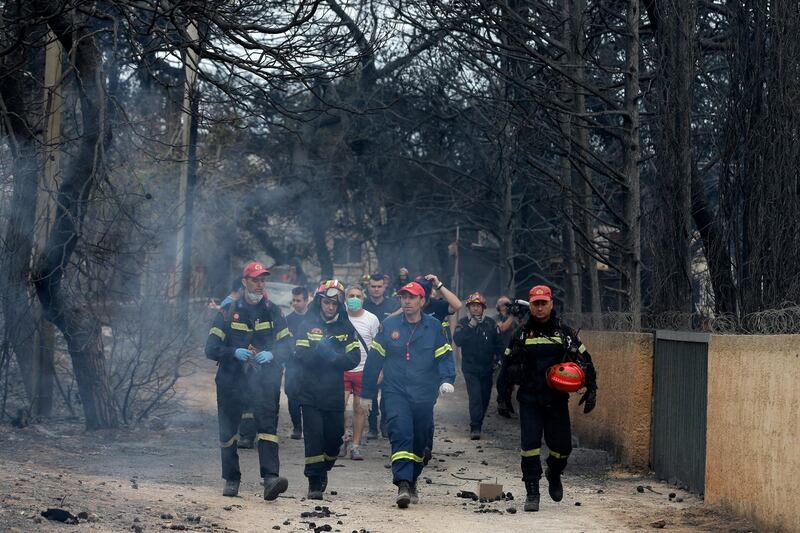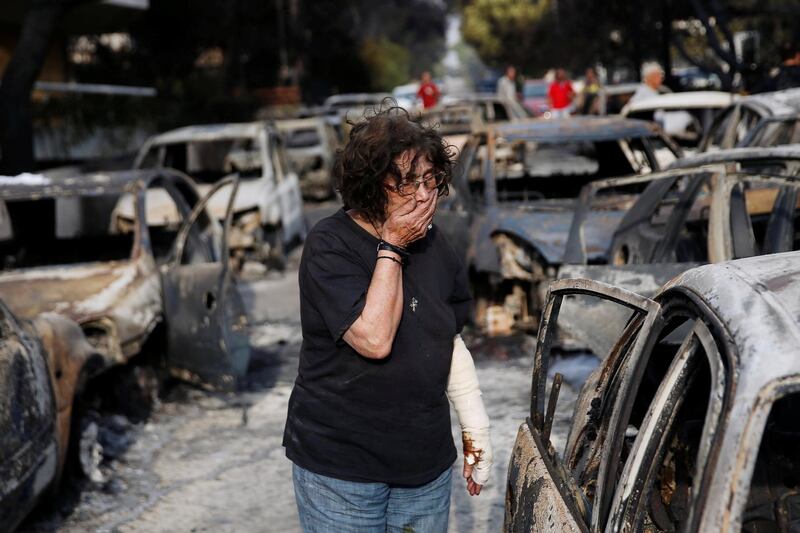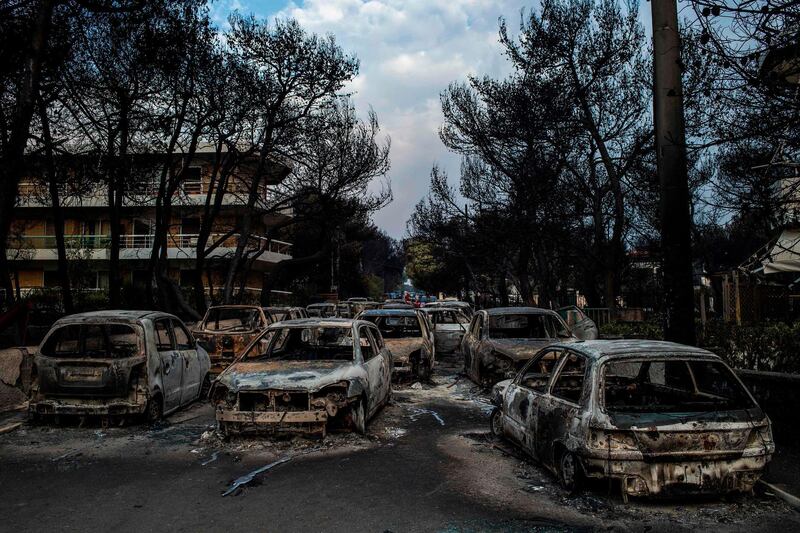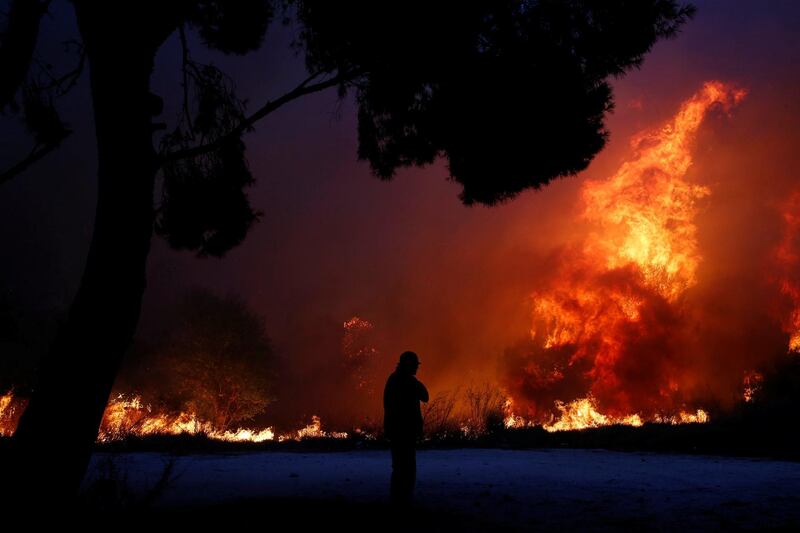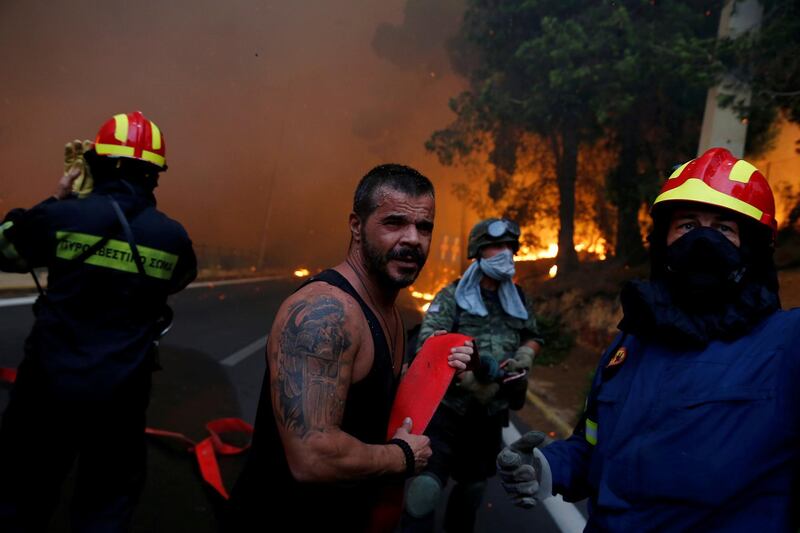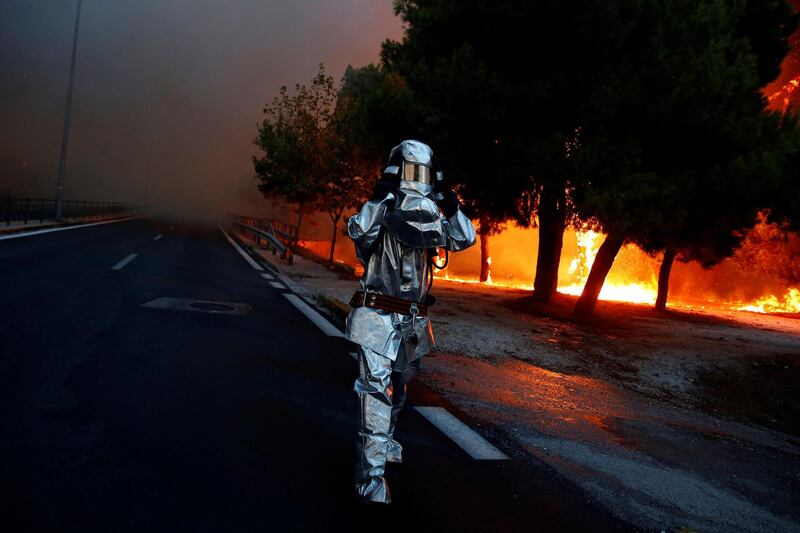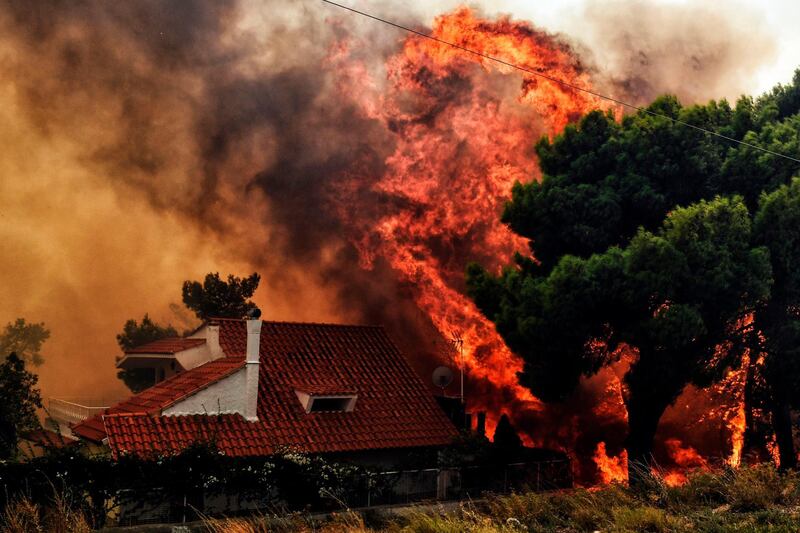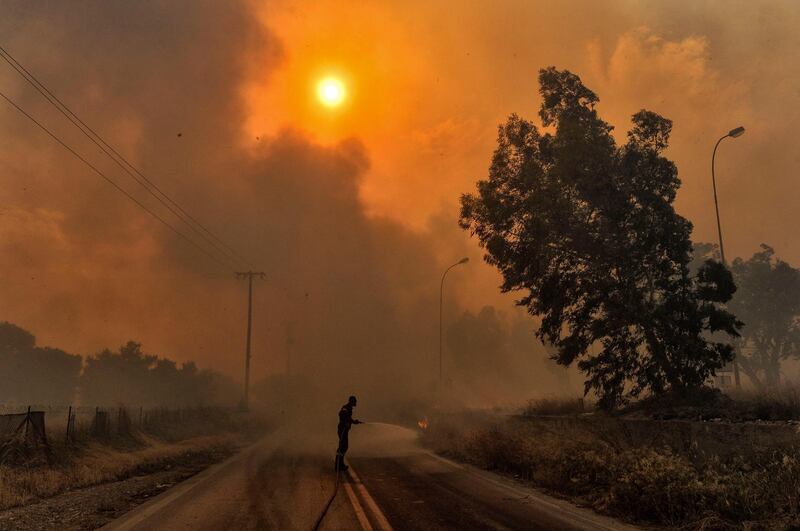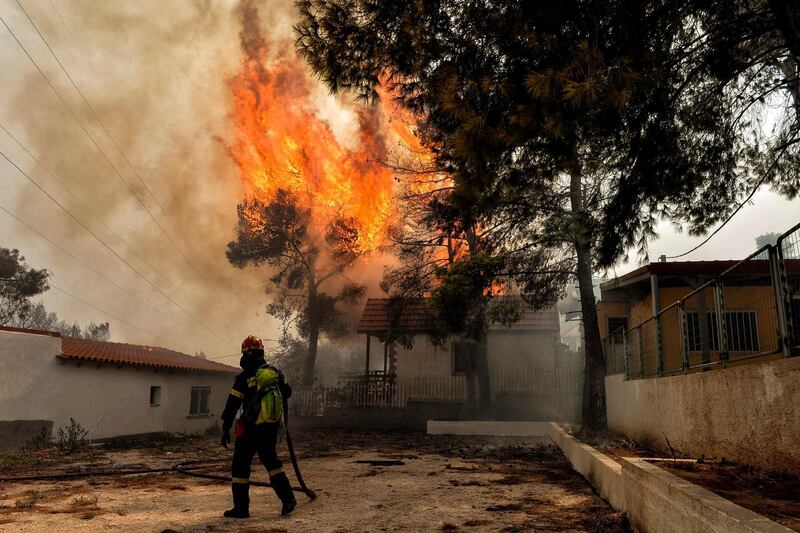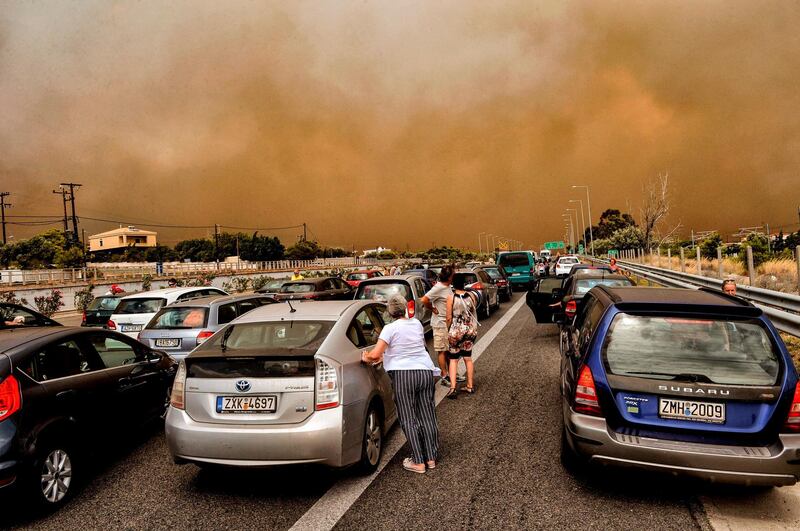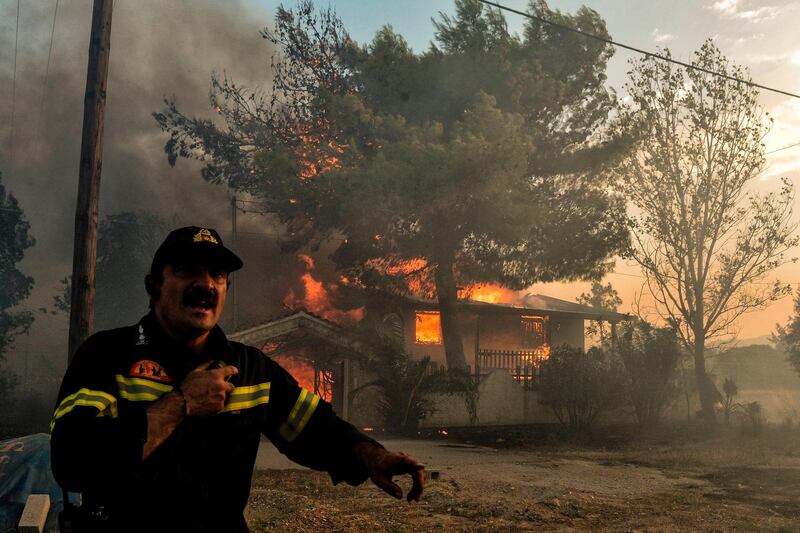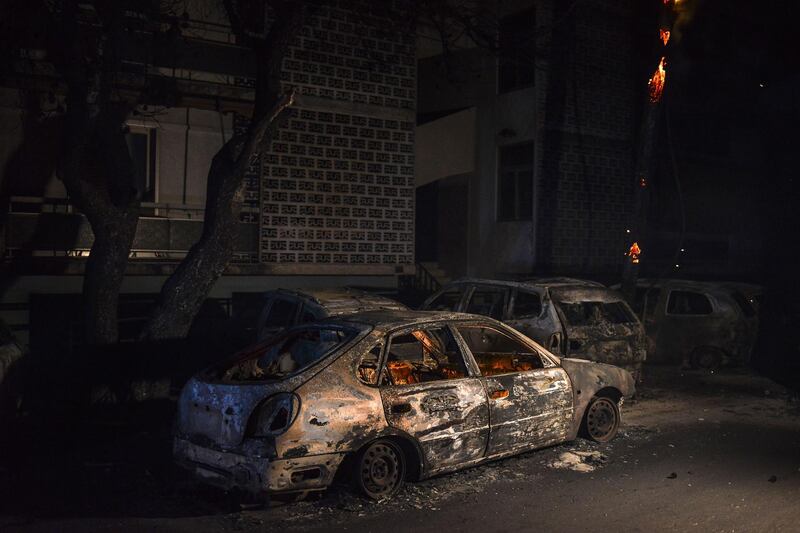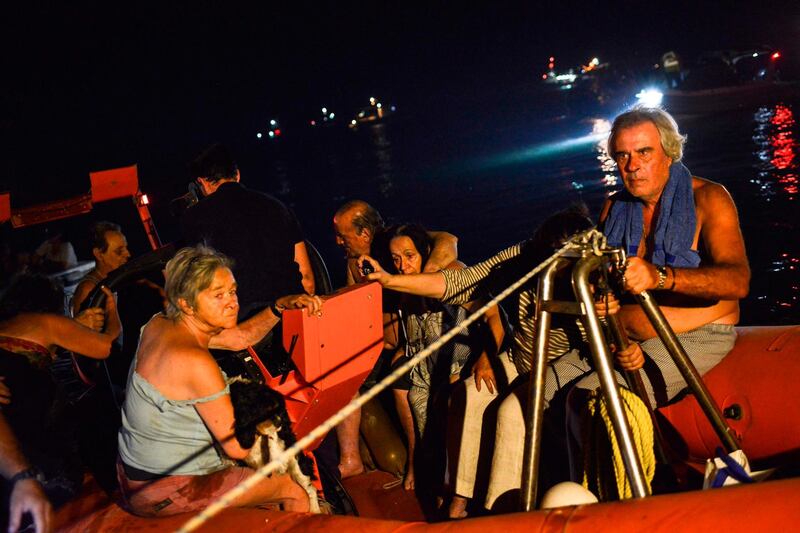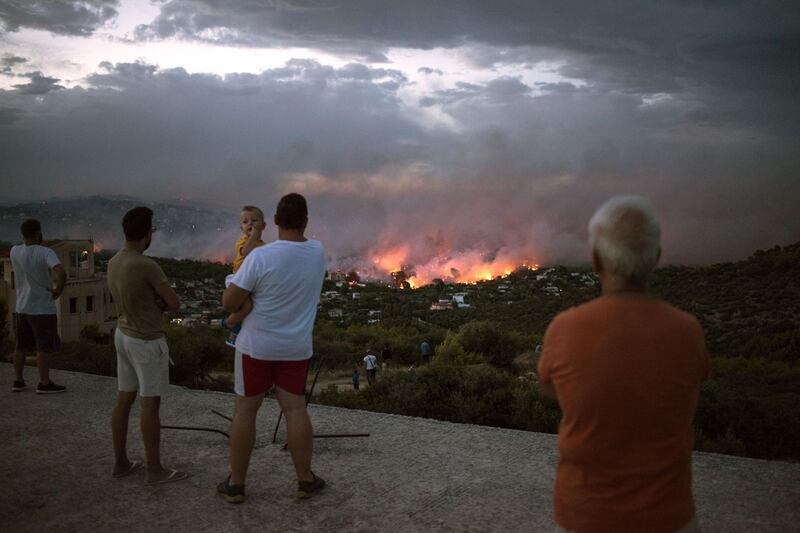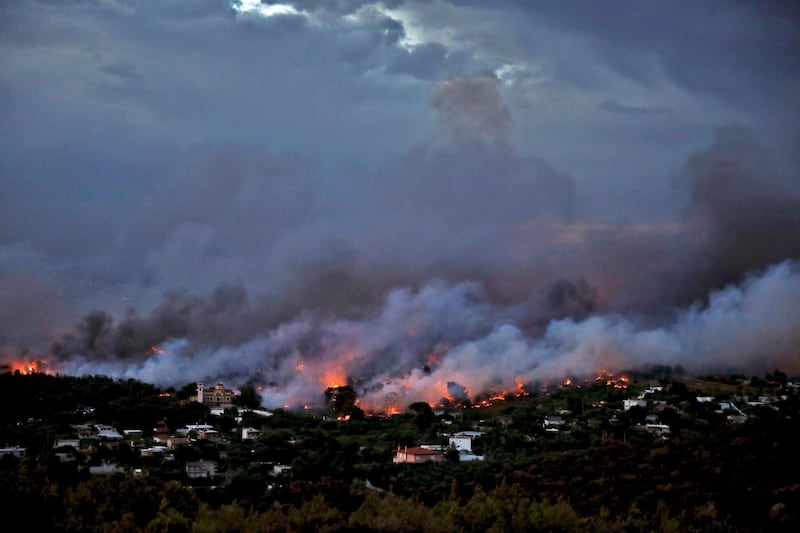At least 74 people have been killed and over 150 injured in wildfires burning across Greece, in the country’s worst fire crisis in over a decade.
The most devastating blazes occurred in Mati, a seaside town about 30 kilometres east of Athens, where a Red Cross official said on Tuesday morning that 26 bodies had been discovered, some of whom were locked in an embrace.
It is thought that the victims had fled to the sea to try and avoid the flames and sweltering heat. They hoped to be picked up by passing boats.
Greek coastguards later retrieved four bodies from the sea, one of which was thought to be a six-month-old baby who died from smoke inhalation.
“Mati doesn’t even exist as a settlement anymore,” a resident told Skai TV.
“I saw corpses, burned-out cars. I feel lucky to be alive.”
The fires in Mati were just one of many devastating blazes across the country and particularly the Attica region, which has a population of around 3.5 million people, and houses the Greek capital.
Gale force winds, topping 80 kilometres an hour, pushed the fires rapidly through once quiet and peaceful resort towns, acting as a retreat for predominantly holidaymakers, pensioners, and children on holiday camps.
The blazes destroyed major transport links, and left a trail of burning houses, cars, and three and four-story buildings in their wake. The dire situation on land forced victims into the sea.
Speaking to the BBC, Mati resident Kostas Loganos said: “Thankfully the sea was there and we went into the sea, because the flames were chasing us all the way to the water, it burned our backs and we dove into the water.
"It reminded me of the eruption (of Vesuvius in 79 AD) at Pompeii, exactly that, and I said my God, we must run to save ourselves, and nothing else. Terrible."
Mati Journalist Kostas Koukoumakas told the BBC: “What is happening here in eastern Attica is a black hell.
“After I passed by hundreds of burning cars and houses earlier today, I reached the yard where police said so many people had been found dead.
“I could see some of them lying on the ground as fog covered the place and a toxic smell spread through the atmosphere.”
Breaking out on Monday, the fires are the country’s worst since 2007, when more than 60 people were killed in a wildfire on the southern Peloponnese peninsula.
“It’s a difficult night for Greece,” Greek Prime Minister Alexis Tsipras said.
“We are dealing with something completely asymmetric.”
The Greek government deployed their entire fleet of water-dropping aircraft on Monday and over 600 firefighters were sent to the areas with the two largest infernos; Rafina, to the east of Athens, and Kineta to the west.
Chief firefighter Achilleas Tzouvaras said that this an “extreme situation”, and “people should leave, close up their homes and just leave”.
“People cannot tolerate so much smoke for so many hours," he added.
Officials also called on partners in the European Union to help. Evacuation vehicles and other related equipment has already been sent from countries such as Spain, Cyrpus, and the United States.
“We are doing everything humanly possible to try and tackle these fires,” Mr Tsipras said. He said that “all emergency forces” had been mobilised to manage the evacuation process, and rescue those in need.
Greece's interior minister, Panos Skourletis, described the wildfires as a "national tragedy", and a "biblical disaster with human losses”.
While wildfires are uncommon in Greece, experts cite record-breaking high temperatures felt across Europe as a potential cause, in some countries reaching highs of over 38°C.
